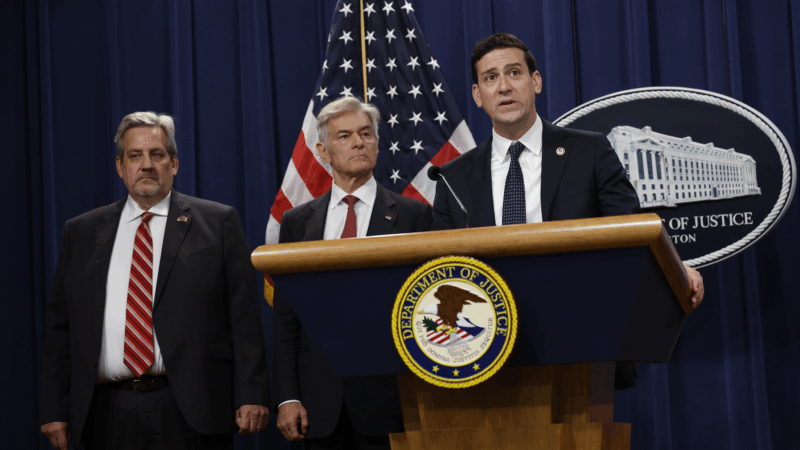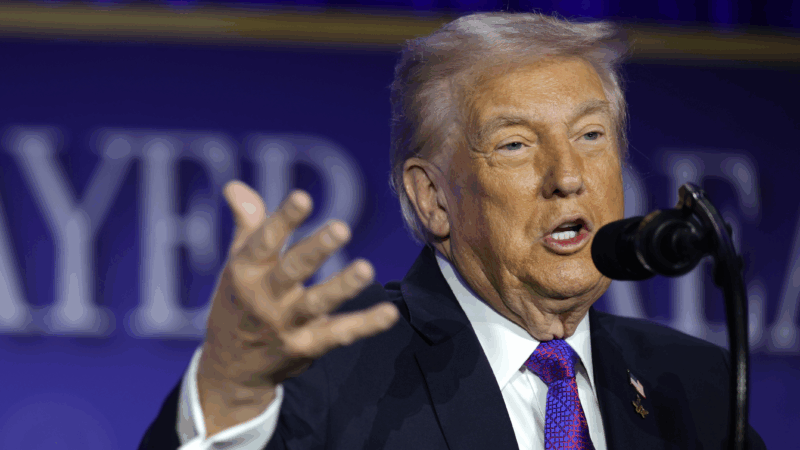DOJ announces a record-breaking takedown of health care fraud schemes
The Justice Department has charged a Pakistani national who allegedly orchestrated a $650 million fraud scheme that primarily targeted an Arizona Medicaid program offering addiction treatment and other services for Native Americans.
Court papers say the defendant, Farrukh Ali, conspired with at least 41 substance abuse clinics to bill the state for hundreds of millions of dollars for substance abuse services that were never provided, not provided as billed or were medically unnecessary. Many of the patients who were enrolled — but not given legitimate treatment — were recruited from the homeless population or Native American reservations, officials say.
The Ali indictment is one of nearly 200 federal cases that the department announced Monday as part of its 2025 national health care fraud takedown. The effort is part of the department’s long-running campaign to combat fraud in the health care sector, which officials estimate at around $300 billion per year.
This year’s takedown involved $14.6 billion in intended losses, making it the largest health care fraud takedown in department history, officials said.
“Today marks a decisive moment in our fight to protect American taxpayers from fraudsters, and to defend the integrity of America’s health care system,” said Matthew Galeotti, the head of the department’s Criminal Division.
“These criminals didn’t just steal someone else’s money. They stole from you,” he added. “Every fraudulent claim, every fake billing, every kickback scheme represents money taken directly from the pockets of American taxpayers.”
The actual losses in the charged cases total $2.9 billion, according to the department.
The cases reflect the full spectrum of health care fraud, from an alleged $10.6 billion urinary catheter scheme by a transnational criminal organization to a purported $1 billion wound care scheme targeting hospice Medicare patients and Ali’s alleged substance abuse fraud scheme in Arizona.
How did the alleged fraud scheme work?
Ali, who is not in U.S. custody and is believed to be in Pakistan, faces conspiracy, wire fraud and money laundering charges. He could not be reached for comment.
According to prosecutors, he owned and operated a company called ProMD Solutions LLC, which was organized in Arizona but based in Pakistan. The firm provided credentialing and enrolling, medical coding and billing services for medical practices, court papers say.
Between April 2021 and July 2023, prosecutors say that Ali struck agreements with at least 41 substance abuse clinics in Arizona, including two identified in court papers as TUSA and CHWC. Both companies were listed as outpatient treatment centers that purportedly provided treatment services for people suffering from addiction to drugs and alcohol, according to court papers.
In order to get and keep patients that could bill the state’s Medicaid system, the owners allegedly paid kickbacks and bribes to the owners of sober homes. A premium, however, was put on patients who were enrolled in Arizona’s program for Native Americans, known as AIHP, because they could receive higher reimbursements from the state system.
“In the greater Phoenix area, they were obtaining patients from homeless shelters, encampments, street corners, hospitals, detox centers,” said a Justice Department official, who spoke on the condition of anonymity because they weren’t authorized to speak publicly.
“They were also going to Native American reservations in vans and offering substance abuse treatment and free room and board in Phoenix. And at times, entire families or couples were recruited into it, and they were largely alcoholics or opioid or meth addicts involved in this.”
As part of the purported conspiracy, Ali credentialed and enrolled these clinics as providers with Arizona’s Medicaid system even though the clinics did not provide legitimate care to patients. Ali’s company then billed the state system for the clinics in exchange for a 5 percent cut of the money the state paid out to the facilities.
Ali and his co-conspirators, court papers say, submitted “false and fraudulent claims … for behavioral health substance abuse treatment therapy services that were not provided, were not provided as billed, were not provided by qualified personnel, were so substandard that they failed to serve a treatment purpose, were not used or integrated into any treatment plan, and/or were medically unnecessary.”
They tried to cover up the false claims, according to prosecutors, by falsifying or altering therapy notes to show that patients attended therapy when they did not or that therapy was provided when it was not.
Prosecutors say Ali and the owners of TUSA and CHWC submitted false claims for some $57 million, and were paid out almost $52 million by the state.
In total, Ali submitted some $650 million in false claims, and he and the 41 clinics received approximately $564 in payments from Arizona’s Medicaid system.
Prosecutors say that Ali used almost $3 million of the nearly $25 million he received under the scheme to buy a home on a golf estate in Dubai, U.A.E.
Mariah Carey, coffee makers and other highlights from the Olympic opening ceremony
NPR reporters at the Milan opening ceremony layered up and took notes.
Trump’s harsh immigration tactics are taking a political hit
President Trump's popularity on one of his political strengths is in jeopardy.
A drop in CDC health alerts leaves doctors ‘flying blind’
Doctors and public health officials are concerned about the drop in health alerts from the Centers for Disease Control and Prevention since President Trump returned for a second term.
Photos: Highlights from the Winter Olympics opening ceremony
Athletes from around the world attended the 2026 Winter Olympics opening ceremony in Milan.
Alabama sets execution for man in auto parts store customer’s death
Gov. Kay Ivey on Thursday set a March 12 execution using nitrogen gas for Charles “Sonny” Burton. Burton was convicted as an accomplice in the shooting death of Doug Battle, a customer who was killed during an 1991 robbery of an auto parts store in Talladega.
Trump posts racist meme of the Obamas — then deletes it
Trump's racist post came at the end of a minute-long video promoting conspiracy theories about the 2020 election.







